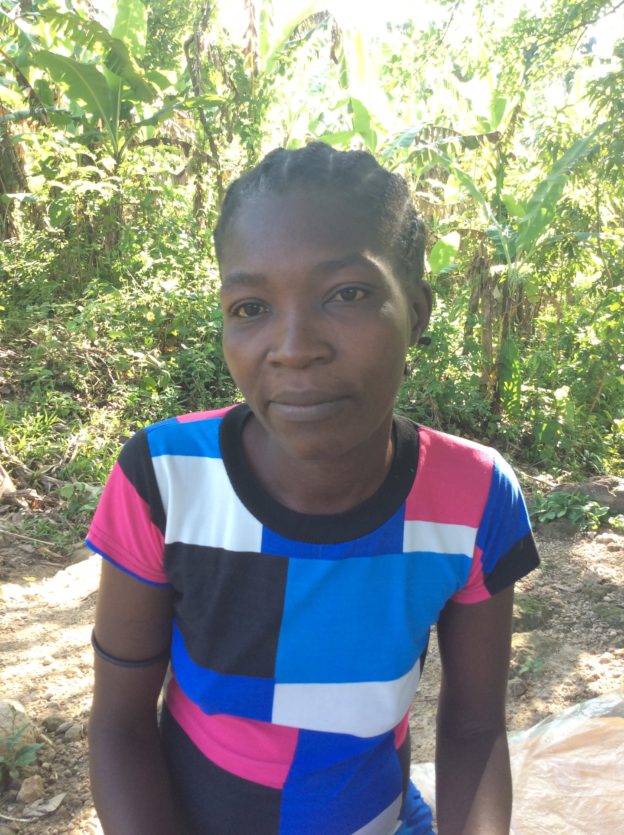Rosana is going through a difficult moment. She lives with her husband and their eight children, and right now everyone is sick. None of it is very serious: colds, minor fevers, and headaches. But it’s hard on her. Nevertheless, she is able to joke about it. “When you have eight children and they’re all sick, they lie down everywhere: on the right, on the left, everywhere.”
She’s been in the CLM program for four months now, but progress is slow. She still has to worry about hungry children. The weekly stipend is worth less than $5.50, and it helps. But it doesn’t go far in a house with ten mouths to feed.
She chose goat-rearing and small commerce as her two enterprises. Her three goats are doing well. Two of them are certainly pregnant, and the other may be as well. And she’s established a small commerce buying and selling beans. She buys five mamit, or coffee cans, of beans on Thursdays, and she sells the beans at market on Saturdays. A standard mamit holds seven godè. She sells the beans by the godè, and she makes about five gourds profit, or about eight cents, on each one, so her week’s profits are only about $2.65.
She knows she could make more money by selling groceries, the basics that her neighbors need to make their daily meals. But one of her neighbors already has such a business, and she’s afraid of the conflict she could create by competing.
But she has a plan. She would like to by rice, sugar, and oil by the sack or gallon and sell it in the market. The problem is that she doesn’t yet have enough capital to do so. A sack of rice costs well over 1000 gourds, and she only has 1500 in her business. She is, however, in a savings club. Every ten weeks it will be her turn to collect the 1000-gourd pot. She figures that if she uses two of her turns – or 2000 gourds – to add to her investment, she’ll be able to move away from beans and into the merchandise that she thinks she can succeed with.
